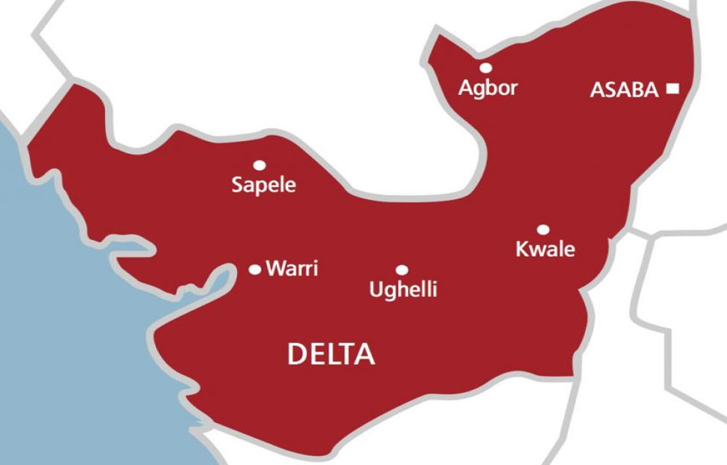Crime
Interpol Launches Silver Notices Against Money Laundering
In the bid to frontally tackle the scourge of money laundering and illicit financial flows across the world, especially in Africa, the International Police Organisation (INTERPOL), has launched a new module codenamed Silver Notices.
This disclosure was made in Abuja on Monday, July 29, 2024, by the Interpol Vice President for Africa, Garba Baba Umar, while declaring open a four-day Training Workshop for Nigerian law enforcement agencies at the EFCC Academy, Abuja.
According to Umar, money laundering across Africa and the entire world has assumed a monstrous dimension and Interpol has designed Silver Notices to combat the menace.
ALSO READ: EFCC Arrests 11 Suspected Internet Fraudsters In Uyo
He said, “Evidence has shown that every hour, hundreds of thousands of dollars are flowing out of Nigeria to the region and across the world, laundered before it reaches the pockets of criminals to enjoy the profits of their crimes, while the hardworking and honest Nigerians pay the price of crime.
“With every successful laundering of criminal money, our country becomes more prone to crime. More drugs, more fraud, more corruption and more violence. Every time criminal money is successfully laundered, our financial institutions take an additional blow…”.
He stressed that hard times awaited money launderers as the Silver Notices would make illicit funds more difficult to launder in any part of the world.
Speaking on the theme of the Workshop: Strengthening Capacity and Coordination against Financial Crimes, Umar pointed out that financial crimes had become transnational and law enforcement agencies needed regular training for their workforce to be ahead of fraudsters
He urged participants at the Workshop to make it a duty to discuss and learn about transnational crimes affecting their regions and identify possible solutions through a review of policing capabilities to support the country and facilitate direct and in-person interaction amongst law enforcement networks across the country.
“In essence, this Workshop will give us the opportunity to re-examine the challenges of fighting transnational crimes in the country, reassess our strategies, and reaffirm our determination and unity as a country to provide security to our citizens and by extension the global community”, he said.
Umar charged all participants at the Workshop to take collaboration with other law enforcement agencies seriously to advance their investigations and ensure that criminals do not get to enjoy the fruits of their labour.
“The only way we can move forward as a country is by working together and identifying common problems, jointly devising solutions, and taking coordinated and cohesive action. And now is the time that we need to go far, by going together”, he said.
Executive Chairman of the EFCC, Ola Olukoyede in goodwill message, also harped on the need for enhanced collaboration in tackling financial crimes.
He particularly stressed that the complex nature of corruption across the world could only be broken by the might of collaborative actions by every stakeholder.
“The daunting nature of the fight against corruption in Nigeria and the world at large deserve serious collaboration among organizations saddled with the responsibility of fighting corruption”, he said.
Olukoyede, who spoke through the Director, Fraud Risk Assessment and Control, FRAC, of the EFCC, Francis Usani, appraised the pivotal role of the EFCC in tackling corrupt practices, especially its impressive records of convictions and recoveries and expressed optimism that, with the new emphasis on the preventive framework in tackling financial crimes by the Commission, greater progress would be made.
“…Our records of convictions and recoveries stand us out, but we will not rest on our oars, we are committed to doing more and in this commitment, the EFCC is re-strategising its operations with a focus on prevention knowing that it is easier and cheaper to prevent corruption from happening than investigating and prosecuting corruption”, he said.
In his remarks, Ambassador Extraordinary and Plenipotentiary of Japan to Nigeria, Kazuyoshi Matsunaga, described the workshop as an important joint initiative between Japan and Nigeria to combat financial crimes.
He explained that in the contemporary globalized world, financial crimes transcended borders and required international cooperation among law enforcement agencies to combat them.
“I am delighted that INTERPOL and the Japanese National Police Agency are an integral part of this project, contributing their expertise. A remarkable collaboration took place three years ago when Japanese and Nigerian law enforcement agencies successfully returned a fund to a Japanese fraud victim, earning immense gratitude. Strengthening our partnership through this project will benefit not only Nigerians but people around the world, including the Japanese”, he said.
Director General and Chief Executive Officer, Nigerian Financial Intelligence Unit (NFIU), Hafsat Bakare, spoke about the imperative of strengthening capacity and coordination against financial crimes, pointing out that “financial intelligence and financial analysis techniques are key to tackling economic crimes.”
The NFIU, she said, was sensitive to the interconnected nature of the criminal justice system, the threat of organized crime and cybercrimes being fought by law enforcement agencies.
She expressed optimism that the training law enforcement officers would receive at the Workshop would “sustain efforts being made to ensure that Nigeria exit the Grey List of the Financial Action Task Force possibly by mid-2025”
Director, Interpol’s Financial Crime and Anti-Corruption Centre (IFCACC), Isaac Kehinde Oginni, said the only way to disrupt organised crimes was by denying fraudsters the financial profit behind their criminal enterprise.
Besides, financial intelligence could also be utilized well when investigators recognise its value and use it to build a financial profile around suspects.
He challenged participants and stakeholders at the Workshop to collectively work together and fight money laundering. “Each agency represents a different shape of the puzzle with our different strengths and mandates. Each piece of the puzzle forms part of the bigger picture, and even one missing piece will prevent the whole picture from being developed,” he said.
“Today, we will commence the first phase of the Interpol/JICA workshop, a capacity-building project that aims to strengthen Nigeria’s safety through enhancing law enforcement’s capacity to combat financial crime, as well as through increased national cross-agency collaboration and cooperation,” he said.
The four-day Workshop, first of its kind and hosted by the EFCC, was organized by INTERPOL and the Japan International Cooperation Agency, JICA. It drew participants from the Police, EFCC, NFIU, Nigeria Immigration Service and the Nigeria Customs Service. It will end on Thursday, August 1, 2024.
Crime
Adeleke Condemns Ilesa High Court Burning, Orders Investigation

Osun State Governor, Senator Ademola Adeleke has condemned the burning of Ilesa High Court 2 building by yet to be identified criminals, describing the arson as “an unjustifiable attack on the state judiciary”.
The incident which happened overnight led to the destruction of court sensitive documents and exhibits with the entire building largely burnt to the ground.
It was gathered that the state fire service was mobilised to the scene but the havoc was already over by the time of their arrival. There are indications that files relating to sensitive court cases were destroyed.
ALSO READ: Okpebholo Accounts For Stewardship To Kinsmen
Gov Adeleke in the statement directed thorough investigation into the incident as well as beefing up security across all court premises in the state.
He stated, “Thorough investigation must be conducted by the security agencies to apprehend the suspects and ensure they face the consequences of their actions. I further direct security agencies to beef up surveillance across the various court buildings.
“Additionally, the Attorney General and Commissioner for Justice is to join hands with the Ministry of Works and Infrastructure for the immediate rehabilitation of the burnt down building.”
Gov Adeleke described the attack as a threat to democracy and noted that the judiciary remains the stabilizer and critical arbiter of the democratic process, urging support rather than attack for the judiciary.
Crime
Four Children Vanish Days After Women Move Into New Apartment In Delta

Fear and anxiety have spread across the Ogwashi-Uku community in Aniocha South Local Government Area of Delta State following the abduction of four children by suspected child traffickers.
The incident occurred on Sunday in the Umuokwe quarters, where two of the victims — identified as siblings, Ebube and Miracle — were reportedly taken by three unidentified women.
The women had only recently moved into the area after securing emergency accommodation.
READ MORE: Edo Prescribes Death By Hanging For Kidnappers
Community sources said the suspects lured the children from their homes under the pretense of buying them biscuits from a nearby shop.
“It was when the children could not be seen around the compound that neighbours expressed concern,” a resident said.
“By the time the neighbours visited the ladies’ apartment, the room was empty as neither the occupants nor the children could be found.”
Confirming the development, the Police Public Relations Officer for Delta State Command, SP Bright Edafe, said the landlady who rented out the room to the suspects has been arrested and is currently in custody.
“The children were abducted three days after the women rented the apartment,” Edafe stated.
“It is true; the problem is that there is no link. They just came and said they wanted to rent an apartment and the landlady gave it to them with no details, no name, no phone number, no agreement, and after three days they carried four children. The landlady has been arrested because her actions are suspicious.”
Security agencies have launched a manhunt for the suspects, while the community remains on alert as the search for the missing children continues.
Crime
Alleged Murder: Police Confirm Arrest, Extradition Of ‘Killaboi’ After Months-Long Hunt
Benjamin Best Nnayereugo, popularly known as ‘Killaboi,’ has been extradited to Nigeria from Doha, Qatar, to face trial for the alleged murder of 21-year-old university student Augusta Onuwabhagbe.
The Nigeria Police confirmed his arrival in the country in the early hours of Saturday, following months of international manhunt and collaborative efforts involving INTERPOL, the Federal Ministry of Justice, Qatari authorities, and the Nigerian Police.
Nnayereugo, who had been declared wanted in October 2023, was accused of killing Onuwabhagbe—a first-class student of Lead City University, Ibadan—on July 13, 2023, at his residence in Ajah, Lagos.
READ MORE: Wanted Instagram Influencer Killaboi Arrested In Sierra Leone
“The Nigeria Police Force has successfully completed the extradition of Benjamin Best Nnayereugo, male, widely known as ‘Killaboi,’ from Doha, Qatar to Nigeria,” a statement by the Force Public Relations Officer, ACP Olumuyiwa Adejobi, read.
The extradition was initiated following a petition from the family of the deceased on September 29, 2024, which triggered INTERPOL NCB Abuja’s involvement.
After the murder, the suspect fled the country and released a video online purporting to confess to the crime — a move police described as “a deceptive strategy to derail investigative efforts.”
Following his declaration as wanted by the Lagos State Police Command, an INTERPOL Red Notice was issued.
He was eventually arrested in Sierra Leone under the alias “Kanu Princeton Samuel” on October 20, 2023, but escaped custody in a prison break the following month.
Authorities tracked the fugitive’s movements across West Africa, East Asia, and the Middle East before he resurfaced in Doha on January 24, 2025, living under the false name “Toure Abdoulaye” with a fake Guinean passport.
In February, Qatari authorities arrested him after advanced biometric verification confirmed his identity. The Nigerian government’s extradition request was later approved.
The Inspector-General of Police, IGP Kayode Egbetokun, praised the international cooperation that led to Nnayereugo’s return.
“The synergy amongst nations is vital to curb trans-border crimes,” the IGP said, while assuring Nigerians that the fugitive will face diligent prosecution.
Nnayereugo’s case had earlier drawn widespread attention, with the Lagos State Police issuing a public alert for information on his whereabouts.
At the time, the police described him as a 26-year-old, 5’9″ tall, dark-complexioned man from Abia State who spoke English, Igbo, and Pidgin English fluently.
The Nigeria Police have reiterated their commitment to justice, assuring the public that all necessary steps will be taken to ensure accountability.


















